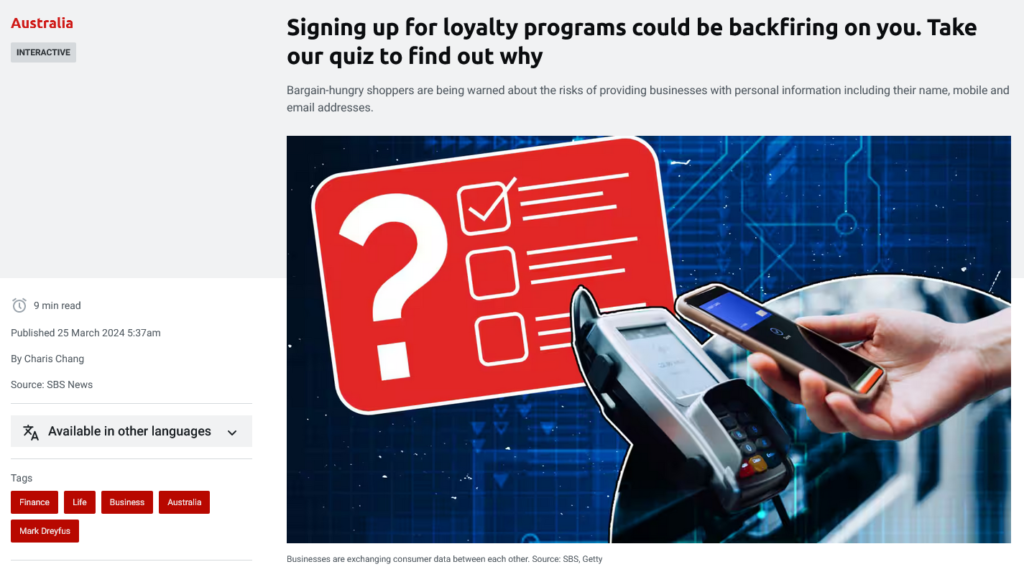In the digital age, where technology permeates every aspect of our lives, the canvas upon which our existence is painted has transformed into a landscape heavily influenced by the concept of surveillance capitalism.
Coined by Shoshana Zuboff (2017), surveillance capitalism refers to the commodification of personal data captured through surveillance technologies for profit. It's a system where companies profit by monitoring and analyzing our behavior, then selling this information to the highest bidder.
At the heart of surveillance capitalism lies the notion of data as a currency. Every click, like, share, and purchase generates a trail of data, meticulously collected and analyzed by tech giants and advertisers alike. This data, often referred to as "digital exhaust," holds immense value in understanding consumer preferences, habits, and desires.
Good night, sweetheart. Rest heals the body and has been shown to lessen the risk of heart trouble and psychological problems.
In this canvas of surveillance capitalism, individuals unwittingly become both the creators and the product. Our online activities, once thought private, are now meticulously monitored and dissected. Algorithms track our browsing history, social interactions, location data, and even our biometric information, constructing intricate profiles of who we are and what we might do next.
But the true danger of this canvas lies in its opacity. Many users are unaware of the extent to which their data is being collected and utilized. Terms and conditions, often buried beneath layers of legalese, grant companies sweeping permissions to harvest personal information. The pervasive nature of surveillance capitalism erodes notions of privacy, leaving individuals vulnerable to exploitation and manipulation.
Imagine a Fictional Scenario
Imagine a fictional scenario where Canva, a popular online graphic design platform, integrates a fictional Google Sign-In feature. In this fictional world, users are presented with the option to sign in to Canva using their Google account. When they opt for this feature, they are prompted to grant permission to Canva, allowing access to certain information associated with their fictional Google account.

In this fictional context, once permission is granted, Canva fictitiously extracts the requested information from the user's fictional Google account. This fictitious data extraction includes fictional details such as the user's name and email address, which are essential for account management within the fictional Canva platform. Depending on the user's fictional Google account settings and the fictitious permissions requested by Canva, additional fictional information such as the user's profile picture or phone number might also be accessed.
Don’t skip breakfast. Studies show that eating a proper breakfast is one of the most positive things you can do if you are trying to lose weight. Breakfast skippers tend to gain weight.
In this fictional universe, Canva has fictitious partnerships or collaborations with third-party companies or service providers. These partnerships could hypothetically be for various purposes, such as integrating additional features into Canva or offering fictional complementary services to Canva users. As part of these fictitious agreements, Canva might theoretically share certain user data, such as names and email addresses, with these affiliated third parties.
Once the affiliated third parties fictitiously receive the fictional user data from Canva, they may hypothetically begin to send fictitious invitations or service offerings to the users whose data was fictitiously shared with them. For example, a fictional marketing software company affiliated with Canva might use the fictional email addresses provided by Canva to send promotional emails offering their services to fictional Canva users.

As the fictional users interact with these fictitious invitations or service offerings, they may hypothetically provide additional fictional information or engage in further activities that generate more fictitious data. For instance, a user who clicks on a promotional email and hypothetically signs up for a service offered by a fictitious affiliated third party may provide additional personal information during the fictional sign-up process, thereby expanding their fictional data footprint.
The affiliated third parties in this fictional scenario might also fictitiously analyze and aggregate the fictitious data to gain insights into fictional user behavior, preferences, and demographics. This aggregated data can be valuable for targeted fictional marketing campaigns, product development, or market research purposes.

In this entirely fictional context, Canva leverages the fictional Google Sign-In integration to facilitate the extraction and sharing of fictional user data with affiliated third parties, potentially leading to the expansion of individual fictional data footprints. It's important to remember that this is purely a work of fiction and not representative of any real-world practices.
Ramifications Beyond the Digital Realm
Moreover, the ramifications extend beyond the digital realm. Surveillance capitalism has seeped into our physical world through the proliferation of IoT devices, smart cities, and facial recognition technology. The omnipresence of surveillance blurs the line between public and private spaces, raising profound concerns about civil liberties and democratic principles.
Signing up for loyalty programs could be backfiring on you. Take our quiz to find out why??? (SBS News, Mar MMXXIV)

The title "Signing up for loyalty programs could be backfiring on you. Take our quiz to find out why" (https://tinyurl.com/do-not-take-the-quiz) employs several psychological techniques that could be interpreted as an attempt to influence public perception, potentially diverting attention from broader issues like corporate mass surveillance. Here's a breakdown of why this might be seen as an attempt at mass hypnosis or a way to whitewash the complexities of corporate surveillance:
Intrigue and Fear: The phrase "could be backfiring on you" instills a sense of fear or concern, implying that something people commonly perceive as beneficial (loyalty programs) may have hidden drawbacks. This plays on the psychological principle of loss aversion, where the fear of losing something or experiencing a negative outcome can heavily influence decision-making.
Engagement Through Interaction: By inviting readers to "Take our quiz," the title encourages interaction. Quizzes engage people in a way that can make the subsequent information feel more personalized and relevant. This technique can effectively capture attention and potentially make the reader more receptive to the message, even if it simplifies or diverts from the complexities of how their data is used beyond loyalty programs.
Simplification of Complex Issues: The title suggests that the potential negative aspects of loyalty programs can be easily understood or assessed through a quiz. This simplification may divert attention from the broader, more complex issues of how corporations collect, analyze, and use consumer data. By focusing solely on loyalty programs, the discussion may neglect the pervasive nature of surveillance capitalism, which involves much more than just the data collected through these programs.
Redirecting Blame: The title implies that the consumer action of signing up for loyalty programs is what "could be backfiring," potentially redirecting blame away from corporations' practices of collecting vast amounts of data without transparent consent. This shifts the focus from systemic issues within corporate data collection and use to individual consumer choices, possibly minimizing the perceived responsibility of corporations.
Assumption of Control: Suggesting that taking a quiz can provide insights into why loyalty programs might be detrimental assumes that consumers can easily mitigate any negative consequences through their actions. While empowering in one sense, this overlooks the larger problem of how little control individuals actually have over their data once it's been shared with or collected by corporations.
In sum: while the title aims to engage and inform, its framing and techniques could also be interpreted as minimizing the broader context and concerns related to corporate data practices. By focusing narrowly on loyalty programs and offering simplistic solutions, it potentially distracts from the more significant conversation about privacy, consent, and the pervasive surveillance that characterizes much of today's digital landscape.
To resume: Inviting users to take a quiz under the guise of educating them about the potential pitfalls of loyalty programs can paradoxically serve the interests of data collection and mass surveillance, effectively doing the opposite of what the article's title suggests. (Or: Do not Read their Terms'n'Conditions @ https://tinyurl.com/do-not-read-terms-sbs and Privacy Policies YEAH!)
In this dystopian tableau, the highest bidder gains unprecedented access to our lives. Advertisers tailor their messages with surgical precision, exploiting vulnerabilities and shaping consumer behavior. Political entities leverage data to sway elections and manipulate public opinion. The consequences of this unchecked surveillance are far-reaching, challenging the very fabric of society.
Yet, amidst the shadows cast by surveillance capitalism, there remains a glimmer of hope. Increasing awareness and advocacy for digital rights have sparked conversations about data ownership and privacy rights. Regulatory efforts, such as the GDPR in Europe and the CCPA in California, aim to curb the excesses of surveillance capitalism and empower individuals with greater control over their data.
Sleep right! Sleeping on your right side increases the efficiency of your sleep.
Ultimately, the canvas of surveillance capitalism is a reflection of our evolving relationship with technology. It presents a stark reminder of the power dynamics at play in the digital age and the urgent need for ethical frameworks to guide its development. Only by reclaiming control over our data and demanding transparency can we hope to shape a future where privacy is not a luxury but a fundamental human right.
Psychological and Developmental Implications of our Interactions with Technology Per-Se
Expanding on this narrative, we delve deeper into the realms of human development and the psychology of human development in the context of technological abstention and heightened awareness. The ongoing conversation not only critiques the pervasive data-sharing practices of corporations but also serves as a springboard into examining the broader psychological and developmental implications of our interactions with technology.

In this extended dialogue, the focus shifts to how the absence of technology and the conscious awareness of its omnipresence can potentially lead to a significant transformation in human development. This transformation is not just about reclaiming privacy or reducing data footprints; it's about understanding the profound impacts of technology on our cognitive processes, social behaviors, and even our very identity.
The Unseen Psychological Impacts
The narrative brings to light the unseen psychological impacts of constant technological engagement. As individuals navigate through the digital landscape, their cognitive load increases, attention spans shorten, and the ability for deep, reflective thought diminishes. This constant engagement not only reshapes neural pathways but also influences the development of one's self-concept and worldview. The psychology of human development, in this context, emphasizes the need for periods of disconnection and reflection to foster a sense of self that is not mediated by algorithmic influences or corporate surveillance.
Human Development Without Technology
Exploring human development in the absence of technological use, we uncover potential pathways to deeper self-awareness and emotional intelligence.
The act of disconnecting, or digital detoxing, allows individuals to reconnect with their inner selves, fostering a development that is more in tune with intrinsic needs and values rather than external validations and notifications. This form of development advocates for a return to basics—engaging with the natural world, cultivating face-to-face relationships, and participating in community life—experiences that technology often mediates or replaces.
The Awakening to Technological Intrusion
The narrative warns of the 'horrifically intrusive' nature of technological surveillance, designed to monitor, predict, and influence behavior on an unprecedented scale. This realization can serve as a catalyst for an awakening, prompting individuals to question and resist the normalization of surveillance capitalism. By understanding the mechanisms at play, individuals can begin to reclaim their psychological space, opting for technologies that respect privacy and encourage genuine connection over exploitation.
Shoshana Zuboff's Insights
Referencing Shoshana Zuboff's "The Age of Surveillance Capitalism" (2017) provides a theoretical backbone to the discussion, offering insights into the economic and social structures that underpin surveillance capitalism. Zuboff's work sheds light on the 'single purpose' of these practices: to commodify human experience for profit, at the expense of individual autonomy and societal wellbeing. This exploration encourages readers to critically assess their relationship with technology, fostering a developmental journey that prioritizes human dignity and autonomy over passive consumption and surveillance.

The Path Forward
The dialogue concludes with a call to action, urging individuals to become more mindful of their technological use and the subconscious implications thereof. By advocating for a conscious uncoupling from pervasive digital surveillance, the narrative suggests a path towards a more authentic human development—one that values privacy, autonomy, and the richness of unmediated human experience. This journey is not about rejecting technology outright but about cultivating a more informed and intentional relationship with it, recognizing its potential both to enhance and to detract from the quality of human life.
The Umbrella Narrative
In discussing the narrative and its elements, including the reference to quizzes, loyalty programs, and the dynamics of surveillance capitalism, it's important to clarify that there is no endorsement or promotion of any fictional corporate entities mentioned for the purpose of this story. These entities, whether depicted as existing in the narrative, operating in virtual environments, or referenced in any legal context, are entirely fictional and serve solely as illustrative examples to explore the themes of privacy, data sharing, and consumer awareness in a hypothetical scenario.
All people are equal! Except those wearing an umbrella.
The mention and description of these fictional entities are used exclusively for the purpose of engaging in a broader discussion about the implications of technology and data practices on personal privacy and autonomy. They are not intended to represent real companies, services, or practices. The narrative and its components, including the speculative discussion about loyalty programs and quizzes, are crafted to prompt reflection and discussion on the ethical, psychological, and societal impacts of digital surveillance and data collection.
In no way does the creation or use of these fictional examples signify an endorsement of similar real-world practices or the entities that may engage in them. The intent is to foster an understanding and critical examination of surveillance capitalism and its effects on individuals and society, without promoting any specific entities, whether they are existing, virtual, or legal constructs.
Terms of Service; Didn't Read?
"Terms of Service; Didn't Read" (ToS;DR) is a project aimed at making the terms of service and privacy policies of websites more transparent and understandable to users. It provides simplified summaries of these documents, highlighting important points about user rights, data usage, and privacy concerns. ToS;DR assigns ratings to services, helping users make informed decisions about the websites and apps they use based on how they handle user data and privacy

Riseup, Personal VPN Sevices
Riseup provides online communication tools for people and groups working on liberatory social change, a project to create democratic alternatives and practice self-determination by controlling our own secure means of communications.




